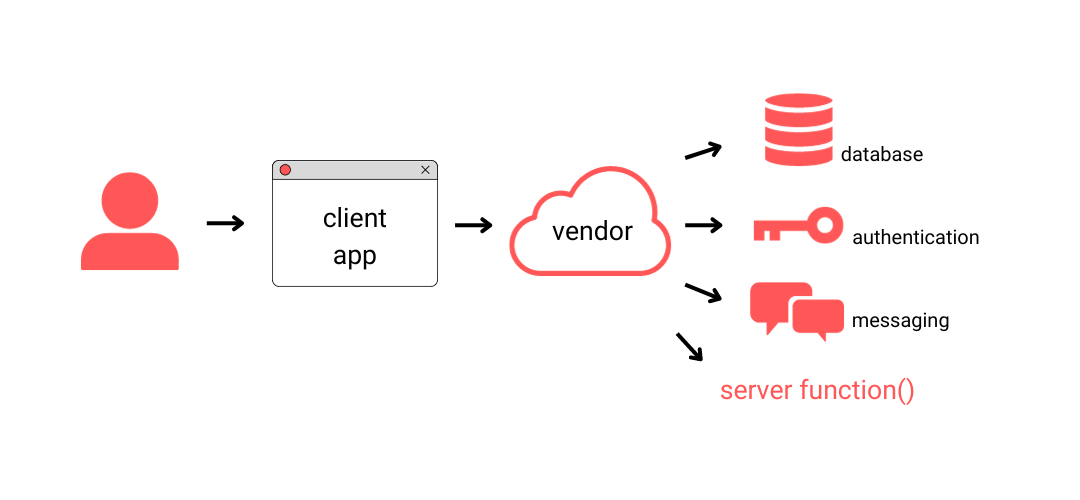Serverless is the future?
All you need to understund this beatifull and cheap architecture
Hey there 👋
I finally came back and today, let's dive into the world of serverless architecture – a budget-friendly way to create software!
First of all, the 'serverless' word is not literally without server. Your application will had the frontend folder, but insted of have an api/server folder, this one will be in the cloud (with a platform such as Firebase, Supabase, Vercel, etc..)

So, you don't need to setup a backend enviroment in your machine to start to code. And don't need to change your infra to improve scalability.
Like everything in life, we have good and bad sides, and i will describe the main points of this architecture and help you to make a better decision. Let's go?
Good points
- Easy to start
- Less costs (you are only charged by services requests)
- Allow developers to focus on the product, increasing productivity
- The services/functions can adapt with the current number of requests, making the product scalable
- Less configuration (comparing with a traditional container architecture or others)
- More tools for security and analytics
Bad points
- Depending of the vendor, you will face a Cold Start Latency (When a function hasn't been invoked for a while, there might be a delay in starting it up when a request comes in.)
- Execution of batch processes or huge scripts can be stopped by the allowed time of your vendor. Keep your eyes open.
- Moving away from a serverless architecture to a different provider or a different model might require significant code modifications, which can be challenging and time-consuming
Use cases
- Validation of proof of concepts
- Perfect for MVP's and escalability
- Apps with closed escope or CRUD based
- Apps with only one or two main endpoint(s) or resources
Future
With the insane growth of AI models, i believe in a future where more applications will be made with serverless architecture, with a lot of server/lambda functions and AI integrations, allowing to connect more and more services with less endpoints.
I hope this content can help you,
Bye 👋